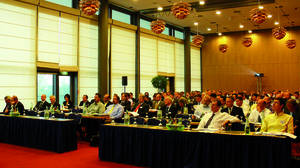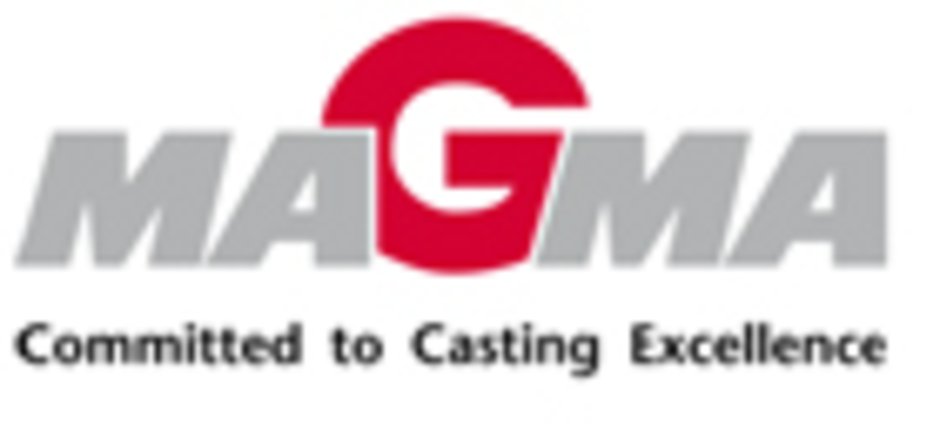In October 2010, around 120 experts from all five continents came together for an International Steel Casting Conference (SCC) in Dresden Germany. Among the attendees and presenters were experts from major steel foundries such as voestalpine, Voith, and Schmolz & Bickenbach, as well as representatives of the Steel Founders’ Society of America (SFSA) and researchers from the University Iowa.
The conference had been initiated by MAGMA Giessereitechnologie GmbH, Aachen Germany, provider of software solutions for casting process topics-suppliers/simulation.html
topics-suppliers/simulation.html, and by the German foundrymen's association “Verein Deutscher Gießereifachleute e. V.” (VDG). “We wanted to offer the casting industry a platform on which Engineering Managers and Managing Directors from all over the world had the opportunity to discuss with each other and with leading experts from research”, MAGMA Managing Director Dr.-Ing. Erwin Flender outlined the organizers’ intention. Main topics of the two-day event were the development of the steel casting industry throughout the world, the status of steel casting technology and the optimization of casting processes.
In his keynote presentation, Dipl.-Ing. Helmut Schwarz, Managing Director of the Austrian voestalpine Giesserei Linz GmbH, spoke about the importance of steel casting for industry, especially for power generation.
 |  In October 2010, around 120 experts from all five continents met for an International Steel Casting Conference (SCC) in Dresden |
|---|
The experts at SCC saw a bright future for the steel casting industry, as various trends all point in a positive direction. The steel casting industry should grow by more than 3 percent per year. This increase will be driven by the general growth in population, by investment in the renewal of infrastructure which require a high proportion of steel castings, by new tools required for the increasingly demanding extraction of raw materials, and by the developing industry for renewable energy, which requires turbine housings and other indispensable cast steel components.
Steel cast components are becoming more thin-walled and complex, which necessitates new manufacturing and quality assurance methods. Therefore, steel casting research today is focused especially on three key disciplines: casting process optimization, quality control and the integrated design of cast components. Integrated design applies casting process simulation up-front in the design phase, in order to improve the service performance of cast components. In the areas of casting process optimization and quality control, simulation also plays a decisive role in the realization and acceleration of new methodologies and developments. New materials and their correct handling during melting and pouring require reliable equipment and know-how.
In addition to providing fundamental information, the focus of the Steel Casting Conference lay on the exchange of knowledge and experiences: steel foundries made extensive and open presentations about their most complex and demanding projects, for example in the production of ultra-large cast components for the energy industry, and demonstrated how they mastered the associated challenges.
The presenters were in agreement that the importance of casting process simulation will continue to grow. Many steel foundries already simulate one-hundred percent of their products before the start of production. In this way, casting properties can be reliably predicted and potential sources for shrinkage, hot tear, and other defects can be recognized and avoided in a timely manner. For ultra-large steel castings, in the use of expensive special alloys, or to avoid extensive machining, the installation of simulation software can already pay for itself in the finishing of single components. Automatic optimization by iterative simulations, made possible through new software developments and advances in computer hardware, provides new possibilities for the ideal design of casting layouts for complex components.
There was wide-reaching agreement among the participants that the SCC was worth the trip, even halfway around the world. A conference with a world-wide focus had been missing, and rarely have so many senior steel casting experts from all over the world come together for networking and a personal exchange of information. Many participants also exploited the conference for benchmarking with the industry’s “champions,” who were gathered together and present on the podium.
also available in <link _top>![]()
Click here for more information about <link _top>MAGMA Gießereitechnologie GmbH in our suppliers profile


